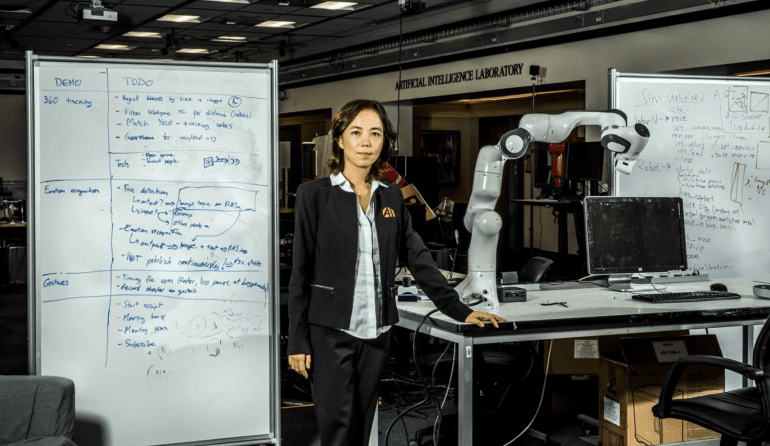- Dr. Fei-Fei Li, a leading AI scientist at Stanford, secures funding for a start-up focused on ‘spatial intelligence’.
- The venture aims to enhance AI reasoning by integrating three-dimensional visual data.
- Investors include Andreessen Horowitz and Radical Ventures, reflecting strong industry interest.
- Dr. Li emphasizes the importance of grounding AI in spatial understanding, moving beyond text-based limitations.
- The initiative holds promise for revolutionizing sectors like healthcare and education through transformative AI applications.
Main AI News:
Renowned for her contributions to artificial intelligence (AI) at Stanford University, Dr. Fei-Fei Li has embarked on a pioneering journey into the realm of ‘spatial intelligence’. Her latest venture promises to revolutionize AI capabilities by leveraging three-dimensional visual data to enhance reasoning processes—a breakthrough poised to redefine the technological landscape.
Dr. Li recently secured seed funding for her startup, drawing support from esteemed backers such as Silicon Valley’s Andreessen Horowitz and Canada’s Radical Ventures, underscoring the profound interest in her innovative pursuits. Building upon concepts she elucidated at the TED conference in Vancouver, Dr. Li envisions a future where AI not only perceives but also comprehends spatial nuances, facilitating more adept decision-making.
The foundation of ‘spatial intelligence’ lies in the seamless integration of visual perception and cognitive processing—a paradigm shift elucidated by Dr. Li during her discourse. By elucidating how natural systems seamlessly navigate three-dimensional environments, she underscores the potential for AI to emulate such cognitive feats. Drawing parallels to human cognition, Dr. Li articulates a vision where AI transcends the limitations of conventional language-based interaction, embracing a more holistic understanding of the world.
At the helm of Stanford’s Human-Centered AI Institute, Dr. Li champions the quest to imbue machines with a deeper understanding of the three-dimensional realm. Through innovative approaches such as integrating large language models (LLMs) with robotic systems, her team endeavors to empower AI to engage with the physical world in unprecedented ways.
The emergence of ‘spatial intelligence’ comes at a pivotal juncture in the evolution of AI, heralding a departure from conventional text-based models. As exemplified by the phenomenon of “hallucination”, wherein AI-generated content may blend factual accuracy with erroneous conjecture, there arises a pressing need for grounding AI in tangible spatial contexts.
Dr. Li’s vision extends beyond technological advancement, encompassing a profound societal impact. By transcending linguistic boundaries, she envisages AI as a catalyst for transformative change, particularly in sectors such as healthcare and education. With boundless optimism, she anticipates a future where AI augments human experiences, enriching interactions and fostering deeper connections with the world.
Conclusion:
Dr. Fei-Fei Li’s entrepreneurial pursuit of ‘spatial intelligence’ marks a significant leap forward in AI innovation. By bridging the gap between visual perception and cognitive reasoning, her venture promises to redefine the technological landscape. With potential applications spanning diverse sectors, from healthcare to education, this development heralds a new era of AI-driven transformation in the market. Businesses should take note of the emerging opportunities and adapt their strategies accordingly to leverage the potential of spatial intelligence in their operations.

